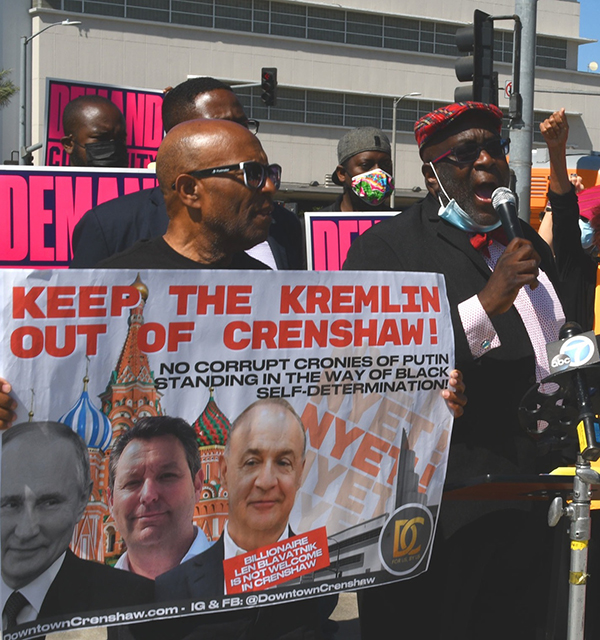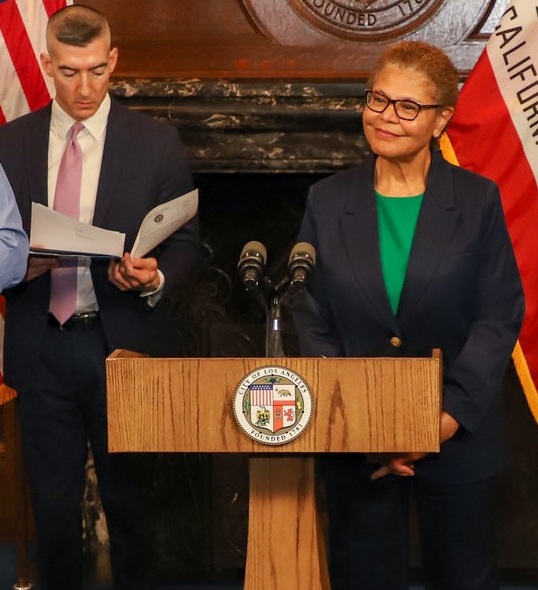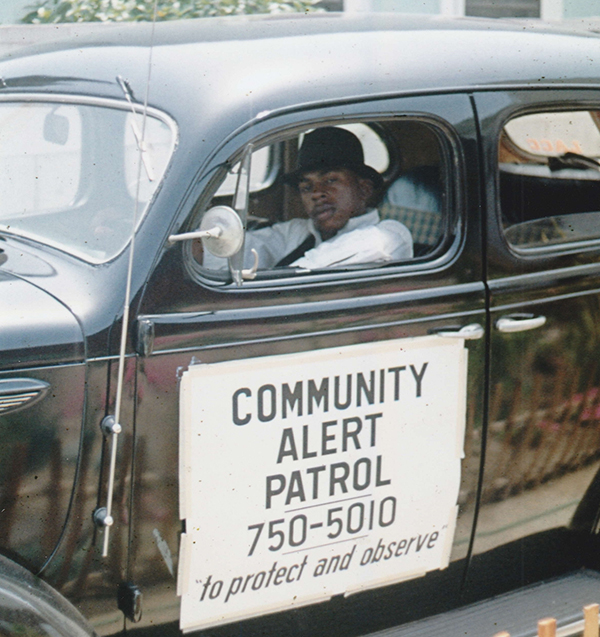By Janice Hayes Kyser
Contributing Writer
CRENSHAW — Like many malls in Los Angeles and across the country, 2021 was an unpredictable year for Baldwin Hills Crenshaw Plaza, one of the first malls in the United States.
However, not only did the iconic mall in the heart of the city’s Crenshaw District have to contend with an economy paralyzed by a global pandemic, and the surging popularity of online shopping, it became a political football and the symbol of gentrification as activists and developers squared off about the future of the mall that many see as the heartbeat of the community.
Over the years Baldwin Hills Crenshaw Plaza has become more than a place to shop. It houses the Museum of African American Art and hosts many neighborhood activities and community group meetings and events.
In August, the mall was purchased by Beverly Hills developer David Schwartzman, president and CEO of Harridge Development, but not before several other offers fell through or were derailed by community protests. The division continues with some members of the community thrilled with the new owner’s plans to include affordable housing, while others remain skeptical about how or if the project will benefit those who call the Crenshaw District and surrounding community’s home.
Harridge’s multimillion-dollar purchase of the mall was announced Aug. 25 after a long and controversial bidding process. Asset manager DWS, which conducted the sale, said in a statement at that time: “Harridge was selected through a fair and open sales process based upon a number of factors, including both purchase price as well as development expertise. We are excited to bring this process to a successful close for the benefit of the community.”
Following the announcement of the sale, Schwartzman said his firm would spend about $1 billion over a seven-year period to revitalize the mall, which was originally built in 1947.
He also vowed to honor Black culture — moving the museum to a more prominent location and continuing to host the Pan African Film Festival and numerous other community events, while creating meaningful economic opportunities for Black and brown entrepreneurs and affordable housing for residents of South Los Angeles.
According to Schwartzman, 10% of rental units in the mixed-use development will be reserved for low-income residents, while another 10% of condominiums will be set aside for teachers, firefighters and health care workers who are often priced out of the local housing market.
“This project is so unique,” Schwartzman said. “There is nothing like it with its cultural significance, and with the subway, housing and adaptive uses. It will be the kind of first-class project that the community deserves and the rest of the country will be pointing to as a model of what is possible.”
Still, while Schwartzman sees enormous opportunity, not everyone is enthused. Some residents continue to argue that plans to convert the 40-acre property into a high-priced, mixed-use residential and office space will price African Americans out of the market and further accelerate gentrification in the area.
In October, a group led by community activist Najee Ali, requested that the new owners of the property enter into negotiations with them to purchase a 51% ownership stake in the mall. The group consisted of Ali, New Life Institutional Baptist Church Rev. Nathaniel W. Morgan and Los Angeles Urban Roundtable President Earl Ofari Hutchinson. In spite of their best efforts, Ali says the group was not able to secure the financial resources needed to make their plan a reality.
“We gave it one last chance because the people of South Central deserve someone to fight for them until their last breath,” Ali said recently.
Previously the fight for Black ownership was being waged by members of a community group, Downtown Crenshaw Rising, who raised $115 million to purchase the mall and successfully convinced two previous potential buyers to withdraw their bids, but were unable to sway Schwartzman to drop his plans to buy the property.
Despite all of the controversy, Schwartzman says he’s confident the community will find the end result will be worth the wait. His firm plans to break ground on the project late next year or in early 2023.
“It is an unbelievable project that will attract people from all over and will stand the test of time,” he said shortly after the sale was announced. “I have never been more excited about a real estate project in my life. I am totally vested in this.”











